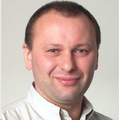讲座题目:Universal approach to link microbial growth, death, turnover and maintenance in steady state ecosystems
主讲人:Yakov Kuzyakov 教授
主持人:周小奇 教授
开始时间:2018-10-29(周一)上午10:45
讲座地址:闵行校区 资环楼435室
主办单位:生态与环境科学学院 科技处
报告人简介:

Prof. Yakov Kuzyakov has been working as a director of Department of Soil Science of Temperate Ecosystems, and department of Agricultural Soil Science, University of Göttingen, Germany. As a famous soil ecologist, his research focuses on soil - plant - microorganisms interactions, such as priming effects, soil biogeochemistry cycling including C and N transformations. He has published a great number of papers, including 3 hot papers (top 0.1% citations) and 19+ highly cited papers (top 1% citations). Prof. Kuzyakov has acted as the member of the editorial board of top ranking journals, such as Global Change Biology, Soil Biology & Biochemistry, European Journal of Soil Biology, Biogeosciences, Land Degradation and Development, etc. For more information.
报告内容简介:
Carbon use efficiency (CUE) is a fundamental parameter of carbon (C) utilization by (micro)organisms and is central for understanding C and energy cycling. Originating from pure culture chemostat studies and based on biomass increase, the common CUE has many limitations for application in natural ecosystems (soils, aquatic systems, sediments), functioning under steady state and where microbial growth is compensated by death. To overcome the limitations of biomass based CUE, we suggest a CUE concept based on C utilization but independent on biomass changes, that can be applied for growing, constant, starving and dying microorganisms, as well as production of cellular and extracellular microbial compounds (storage or extracellular polysaccharides, exoenzymes). The suggested CUE is based on incorporation of the added C into microbial cells and its subsequent decrease with time because of maintenance (including cell internal recycling processes) and microbial turnover (growth and death). The suggested CUE concept overcomes not only the previous limitations based on biomass increase, but also considers the time as main CUE factor; unifies CUE with maintenance and turnover, growth and death; works for individual cells and microbial communities; and reflects the stability of microbial life based on high efficiency of C recycling.




